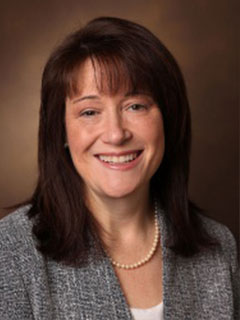HOW CAN WE HELP YOU? Call 1-800-TRY-CHOP
Division of Pulmonary and Sleep Medicine
Many of the common respiratory diseases seen in adults have their origins in childhood. The robust research programs in the Division of Pulmonary and Sleep Medicine reflect the potential child-adult continuum and the trajectory of respiratory diseases and conditions. These programs highlight investigators’ diverse clinical interests across the spectrum of lung and sleep disorders.
What is clinical research and why is it important?
Clinical research is medical research that includes people. Clinical research aims to find new and better ways to prevent, diagnose, and treat diseases in children and adolescents. The research you participate in may not provide a direct benefit to you or your child, but it may help doctors and scientists to better understand your child’s condition and develop new treatments for the future.
Learn more about the different types of clinical research.
¿Qué es la investigación clínica y por qué es importante?
Cystic Fibrosis
The Cystic Fibrosis Center research team is currently conducting numerous observational research studies and clinical trials that involve various procedures and evaluations to further treat and understand different aspects of this disorder.
All around the world, CF patients of all ages are involved in clinical trials testing potential new drugs across different therapeutic areas. These clinical trials include multiple interventional drug studies here at CHOP.
Want to see if you qualify for an interventional drug study? The Cystic Fibrosis Foundation has developed a new search tool for patients and families to find available trials. The online Clinical Trial Finder allows you to narrow your search (by age, lung function, type of therapy) and provides information on specific clinical trials.
We are also specifically concentrating on the disease process of Cystic Fibrosis Related Diabetes (CFRD) and glucose abnormalities. CFRD is a complex condition that adds additional medical burden to individuals with CF. Researchers at CHOP are conducting a number of research studies to better understand the disease and why it develops.
Our CFRD research goal is to:
- Improve screening and find the best methods for detecting CFRD
- Prevent or slow the progression of CFRD
- Better define when treatment of insulin deficiency should begin
Developmental and Rare Lung Diseases
Interstitial Lung Diseases:
Childhood interstitial and diffuse lung disease (chILD) is an umbrella term that includes a broad range of many rare lung diseases that occur in children. The causes of chILD vary; some are genetic, but others aren’t.
The goal of the chILD research team is to:
- Learn more about the causes and outcomes of chILD
- Identify genes that contribute to or cause chILD
- Offer clinical trials with investigational new drugs that may help children with some forms of chILD
Bronchopulmonary Dysplasia:
About half of all babies born prematurely (<36 weeks gestation) will have chronic lung disease (CLD) or bronchopulmonary dysplasia (BPD). Many infants with CLD or BPD are able to recover with the help of medication or oxygen, however, improving treatments and learning about long-term outcomes are very important areas our research team is exploring.
The BPD research team is interested in learning about how environmental exposures, like pollution or mold in the home, may contribute to BPD. We are also looking at the long-term outcomes of children who develop pulmonary hypertension in addition to BPD.
There are multiple research studies open at CHOP to follow babies and children with BPD in the Pulmonary clinic.
Primary Ciliary Dyskinesia:
Primary ciliary dyskinesia (PCD) is a genetic condition in which the cilia that lines the airway, ears, and sinuses doesn’t work correctly. This can lead to a buildup of bacteria and debris in the lungs, airway, and sinuses, leading to an increased chance of developing infections or bronchiectasis.
CHOP is a PCD Center of Excellence and participates in research studies to help identify and treat PCD.
Ataxia-Telangiectasia:
Ataxia-telangiectasia is a very rare inherited genetic disorder that affects the nervous and immune systems, among other body systems. The A-T research team is investigating how and why A-T progresses and seeking to understand more about the genetic basis of this condition.
Lung Physiology
The lung physiology research team is interested in learning more about how breathing can be measured, especially in children too young to perform Pulmonary Function Tests (PFTs).
Sleep Medicine
The Sleep Center at CHOP studies the full spectrum of sleep including behavioral interventions, clinical trials, epidemiology, and complex physiological studies. Our research goals are to:
- Promote healthy sleep across the age spectrum
- Optimize referrals of children with sleep-disordered breathing (SDB) to tertiary care
- Address health disparities in pediatric SDB
- Establish best treatments for children with SDB
- Determine medical and behavioral factors influencing adherence to positive airway pressure in a diverse population including individuals with Downs syndrome
- Determine the feasibility and acceptability of home sleep apnea testing in children
- Characterize sleep and SDB in infants
The Sleep Center research program is dedicated to better understanding how to treat sleep problems in children.



